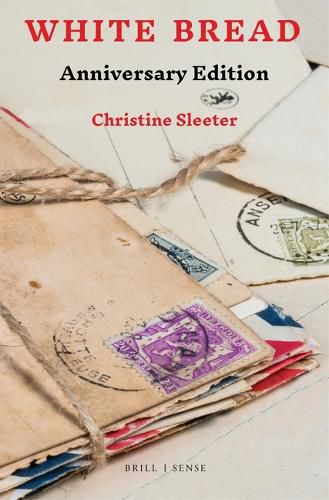Readings Newsletter
Become a Readings Member to make your shopping experience even easier.
Sign in or sign up for free!
You’re not far away from qualifying for FREE standard shipping within Australia
You’ve qualified for FREE standard shipping within Australia
The cart is loading…






Accompany Jessica on a journey into her family’s past, into herself, and into the bicultural students she teaches but does not understand. Jessica, a fictional White fifth-grade teacher, is prompted to explore her German-American family history by the unexpected discovery of a hundred-year-old letter. White Bread pulls readers into a tumultuous six months of Jessica’s life as she confronts many issues that turn out to be interrelated: Why does she know so little about her German-American family’s past? Why are the Latino teachers advocating for Raza Studies, and what does that mean? Can she become the kind of teacher who sparks student learning?
The storyline alternates between past and present, acquainting readers with German-American communities in the Midwest during the late 1800s and early 1900s, portraits based on detailed historic excavation. What happened to these communities gives Jessica the key to unlock answers to questions that plague her.
White Bread can be read simply for pleasure. It can also be used in teacher education, ethnic studies, and sociology courses. Beginning teachers may see their own struggles reflected in Jessica’s classroom. People of European descent might see themselves within, rather than outside, multicultural and ethnic studies. White Bread might also launch family history research.
$9.00 standard shipping within Australia
FREE standard shipping within Australia for orders over $100.00
Express & International shipping calculated at checkout
Accompany Jessica on a journey into her family’s past, into herself, and into the bicultural students she teaches but does not understand. Jessica, a fictional White fifth-grade teacher, is prompted to explore her German-American family history by the unexpected discovery of a hundred-year-old letter. White Bread pulls readers into a tumultuous six months of Jessica’s life as she confronts many issues that turn out to be interrelated: Why does she know so little about her German-American family’s past? Why are the Latino teachers advocating for Raza Studies, and what does that mean? Can she become the kind of teacher who sparks student learning?
The storyline alternates between past and present, acquainting readers with German-American communities in the Midwest during the late 1800s and early 1900s, portraits based on detailed historic excavation. What happened to these communities gives Jessica the key to unlock answers to questions that plague her.
White Bread can be read simply for pleasure. It can also be used in teacher education, ethnic studies, and sociology courses. Beginning teachers may see their own struggles reflected in Jessica’s classroom. People of European descent might see themselves within, rather than outside, multicultural and ethnic studies. White Bread might also launch family history research.